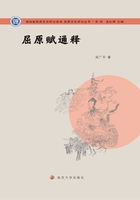Here is a curious example, which shews how strongly the Russian peasants are attached to the agrarian organization of the mir . Some years ago, on a property in the district of Peterhof, the proprietor wanted, in the interests of the serfs, tointroduce the agrarian system of western countries. He divided the land into independent holdings, on which he built at hisown expense separate houses for each family. Scarcely was the abolition of serfage decreed, when the peasants hastened tore-establish the primitive community, and to rebuild their houses on the old spot, in spite of the very considerable mount oflabour which this entailed. There were public rejoicings to celebrate the return to the old customs of the mir . One peasantalone refused to give up his separate holding: he was dishonoured and declared a traitor by the whole village. (7) In the eyesof the Russian peasant every attempt to withdraw from the bonds of the community is a desertion, a theft, a crime for whichthere can be no pardon.
What is a still more curious fact, is, that the German colonies established in Russia have spontaneously adopted the periodicpartition of the land. In the village of Paninskoï, near the Volga, peopled by colonists from Westphalia, M. de Haxthausenstates that the commune effects a new partition of the soil every three, six or nine years, according to the increase in thenumber of inhabitants. The other German colonies in the government of Saratoff have also demanded and obtainedpermission to adopt the same system. Tartar agriculturists practise this Russian method of partition. It is also found amongthe people of Little Russia, in the district of Voronege and in Bessarabia.
In spite of the periodic partition, inequality has been introduced into the mir , and many peasants have no land. First, certaininhabitants of superior intelligence or influence, by means of brandy, acquired a larger share. The mougik calls them the"consumers of the mir " ( miroiedy ). Others were too poor or too idle to cultivate a share; they live by wages. In a veryinstructive work of Prince Vasiltchikof, partial statistics from a province are given, from which it appears that out of1,193,000 households, 75,000 have no land at all, and 7,400 have only preserved the hereditary enclosure. (8)The patriarchal family is the basis of the commune; and the members of the mir are generally considered as descended froma common ancestor. Family ties have maintained a force among the Russians, as also among the Slavs of the Danube and theBalkan, which they have lost elsewhere. The family is a sort of perpetual corporation. It is governed by a chief called "theancient," with almost absolute authority. All property is in common. There is usually neither succession nor partition. Thehouse, the garden, the agricultural implements, the stock, the produce -- moveables of every description -- remain thecollective property of all the members of the family. No one thinks of claiming a separate share. On the death of the father ofa family, his authority and administration devolve on the eldest member of the house: in some districts, on the eldest son; inothers, on the eldest brother of the deceased, provided he live under the same roof. In some parts, too, the members of thefamily themselves elect the new chief. If all the survivors are under age, a relation establishes himself with them and becomesa co-proprietor. The head of the family is called Khozain , which signifies "the administrator," or Bolshak, that is, the "greatone." (9)
When, on a death, a division of property takes place, which is less rare than in former times, it is not made according to thedegrees of relationship, but each ***** male living in the house takes an equal share. An orphan cannot succeed for his fatherby representation; and those who have left the paternal roof have no right of succession. The females remain in the charge ofone branch or other of the family, and receive a portion on their marriage.
In the north, the house passes to the eldest son. In the south, the youngest inherits it, because, ordinarily, the eldest has setup a separate establishment during the lifetime of his father. It is not blood, or descent, which gives the title to succeed, but amuch more effective title, co-operation in the labour which has produced the property whose division is in question. Theadult uncle, nephew, and cousin, have laboured together; they shall take an equal portion. The young girl and the child havecontributed nothing to production: their wants will be provided for, but they have no right to a share in the inheritance.
In the Russian family as in the Russian state, the idea of authority and power is confused with that of age and paternity. Theword starosta signifies "the old;" the word starshina is in the comparative, "older." The emperor is the "father," -- the "littlefather." This is the real principle of the patriarchal system.
Since the emancipation the old patriarchal family has tended to fall asunder. (10) The sentiment of individual independence isweakening and destroying it. The young people no longer obey the "ancient." The women quarrel about the task they haveto perform. The married son longs to have his own dwelling. He can claim his share of the land; and, as the Russian peasantsoon builds himself a house of wood, which he shapes, axe in hand, with marvellous facility, each couple sets up a separateestablishment for itself.















